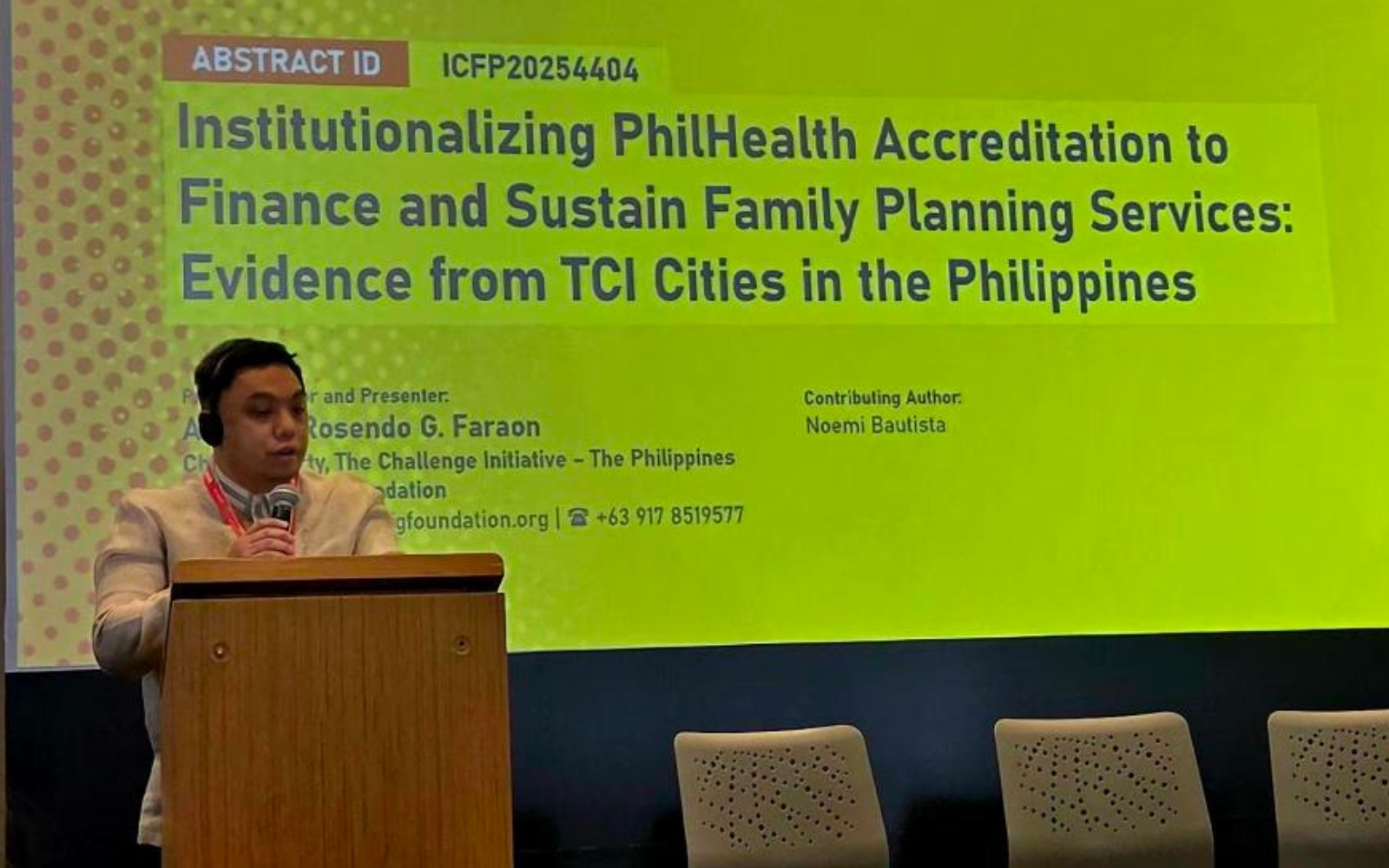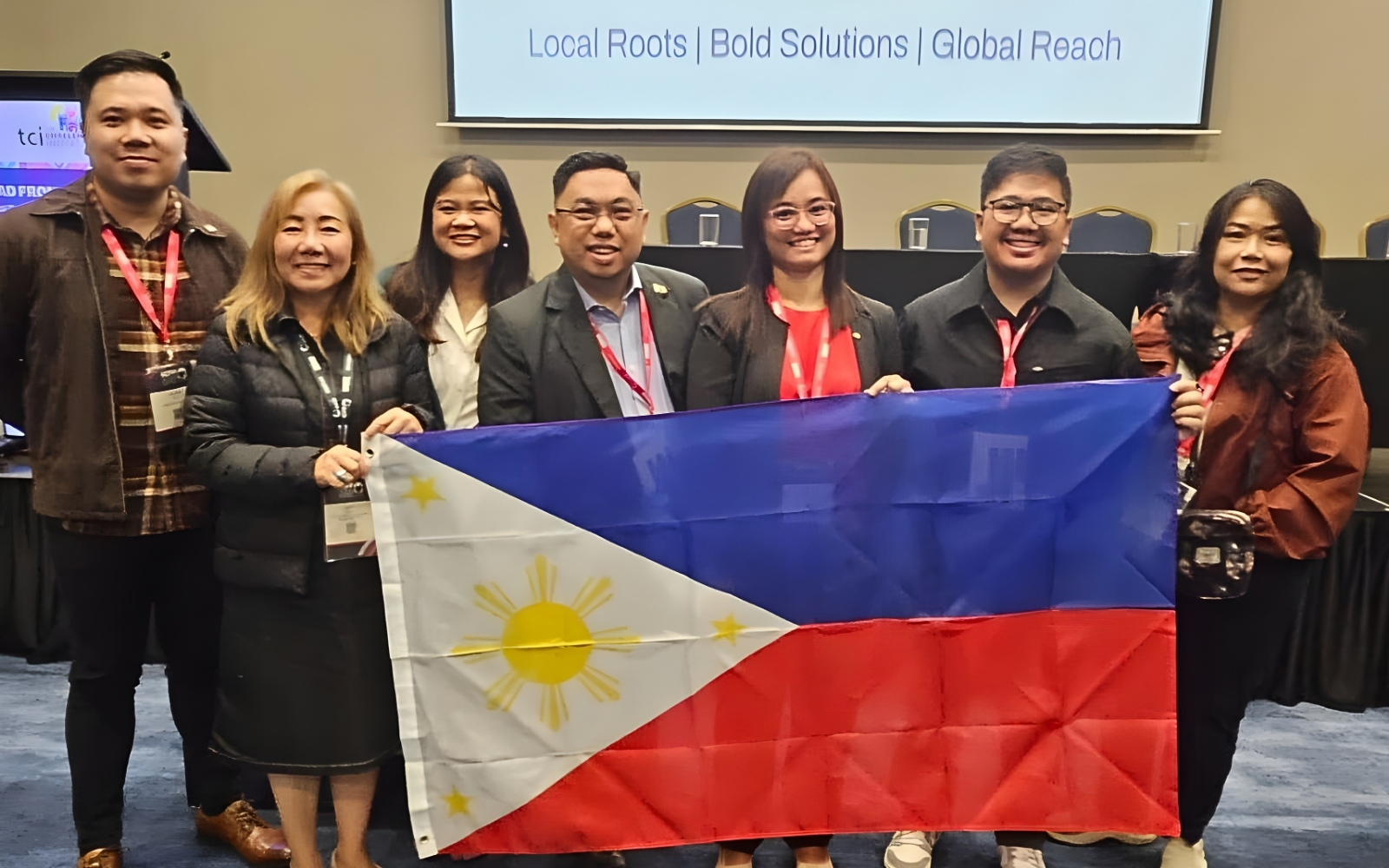Leading From the Future: Reflections from the International Conference on Family Planning
Insights from the Field | by Dr. Anthony Faraon

When our team boarded the flight to Bogotá for the 2025 The Challenge Initiative (TCI) Annual Meeting and the International Conference on Family Planning (ICFP), we carried more than presentations and data sets. We carried the stories of 24 Philippine cities that have chosen to lead boldly in family planning (FP) and adolescent sexual and reproductive health (ASRH). As a relatively young hub in the global TCI network, the Philippines has always been both a learner and a contributor. This year, however, felt different. For the first time, we arrived not merely to listen but to help shape the direction of the Initiative.
Related articles:
- Nine Cities Recognized as Global Self-Reliant Cities in Reproductive Health
- Eight Cities Share Success in Family Planning and Adolescent Health
A Gathering Shaped by Urgency and Imagination
The theme of the Annual Meeting, “Lead from the Future,” captured the spirit of the meeting. Representatives from six TCI hubs across 13 countries came together, each navigating shrinking donor resources, political transitions, and data challenges. Yet despite these pressures, the mood was determined and forward-looking.
In his opening message, TCI Executive Director Kojo Lokko reminded us that the Initiative’s evolution—from Good to Great and Growth Mindset to Reaching New Heights—has always pointed toward long-term sustainability. Leading from the future, he explained, requires clarity about what we hope to achieve and the discipline to act today in ways that bring that vision closer to reality.
Listening to him, I saw how closely this reflects the Philippine journey. In five years, we moved from launching a hub at the height of a lockdown to establishing governance, leadership development, data use, and sustainable financing as the backbone of city programs. Our experience has been a constant cycle of learning, adapting, and improving—often under constraints but always grounded in the belief that cities can lead the change themselves.
Local Leadership at the Center
Our delegation brought this story to the global stage through five scientific presentations at ICFP and through the voices of two city partners: Dr. Benson Panaguiton, City Health Officer of Dipolog City, and Judith Catalan Janiola, City Population Officer of General Santos (GenSan) City.
Judith’s presentation on GenSan’s experience captured attention. She described how local leaders use data not only to monitor performance but also to solve problems, realign priorities, and motivate teams. She highlighted practical actions driven by partnerships with youth organizations, faith leaders, barangay officials, and civil society groups. These efforts helped reduce teenage pregnancies and strengthened community ownership.
A Shifting Global Landscape
Across sessions—from Bayer’s keynote to discussions on domestic financing—a consistent message emerged: the global environment for FP is changing rapidly. Donor funding is tighter, pronatalist and anti-rights movements are gaining momentum, and climate disruptions are affecting service delivery. Health systems must now be more resilient, adaptable, and grounded in local ownership.

During a flash-oral presentation, I shared how Philippine cities are beginning to tap PhilHealth reimbursements to finance FP services. This drew interest, especially from teams exploring sustainable financing models. The idea that a national insurance system can support FP programs illustrates the potential of strengthening and fully utilizing local systems.
Our Monitoring, Evaluation, and Learning Manager, John David, also shared how standardized data presentations transformed city leadership meetings. Data became easier to understand and discuss, encouraging more leaders—from mayors to youth representatives—to use evidence as the basis for decisions.
Expanding the Philippine Contribution Through Posters
The delegation also presented three posters highlighting how TCI-Philippines strengthens city systems:
- Deputy Chief of Party Pamela Mangilin showcased the Leadership for Adolescent and Youth-Friendly Cities (LAYFC) youth engagement model, demonstrating how trained young leaders create safe spaces and support adolescent reproductive health.
- City Team Leader Teresa Ferrolino presented how inclusive leadership, multisector collaboration, and community involvement enable cities to integrate FP and ASRH into development plans.
- John David examined inconsistencies between local and national FP data and recommended improvements in data governance.
Collectively, these posters highlighted how the Philippine hub advances youth leadership, governance, and data quality to support sustainable FP programs.

Leading From the Future in the Philippine Context
Some of the most meaningful exchanges happened outside formal sessions. Colleagues from other countries asked how a small Philippine team expanded to 24 cities while maintaining cost-efficiency. They inquired about City Leadership Teams, budget protection, and governance reforms aligned with national systems.
These conversations confirmed that the Philippines is becoming a source of global learning. Our strength lies in combining leadership development, system integration, and practical governance tools—elements that help cities continue performing even in uncertain environments.
To lead from the future in the Philippine context means focusing on what works: building strong leaders, institutionalizing coaching and onboarding, optimizing PhilHealth financing, integrating routine data use, partnering with youth and communities, and preparing FP systems to withstand political and environmental change. It means trusting local governments to lead while providing the right support and accountability mechanisms.
A Future Already Emerging
As our delegation left Bogotá, I felt a renewed sense of direction. The future that TCI envisions is already visible in Dipolog, General Santos, Iligan, and across the other 21 partner cities. These local governments are proving that FP does not survive because of projects; it thrives because leaders take responsibility for it.